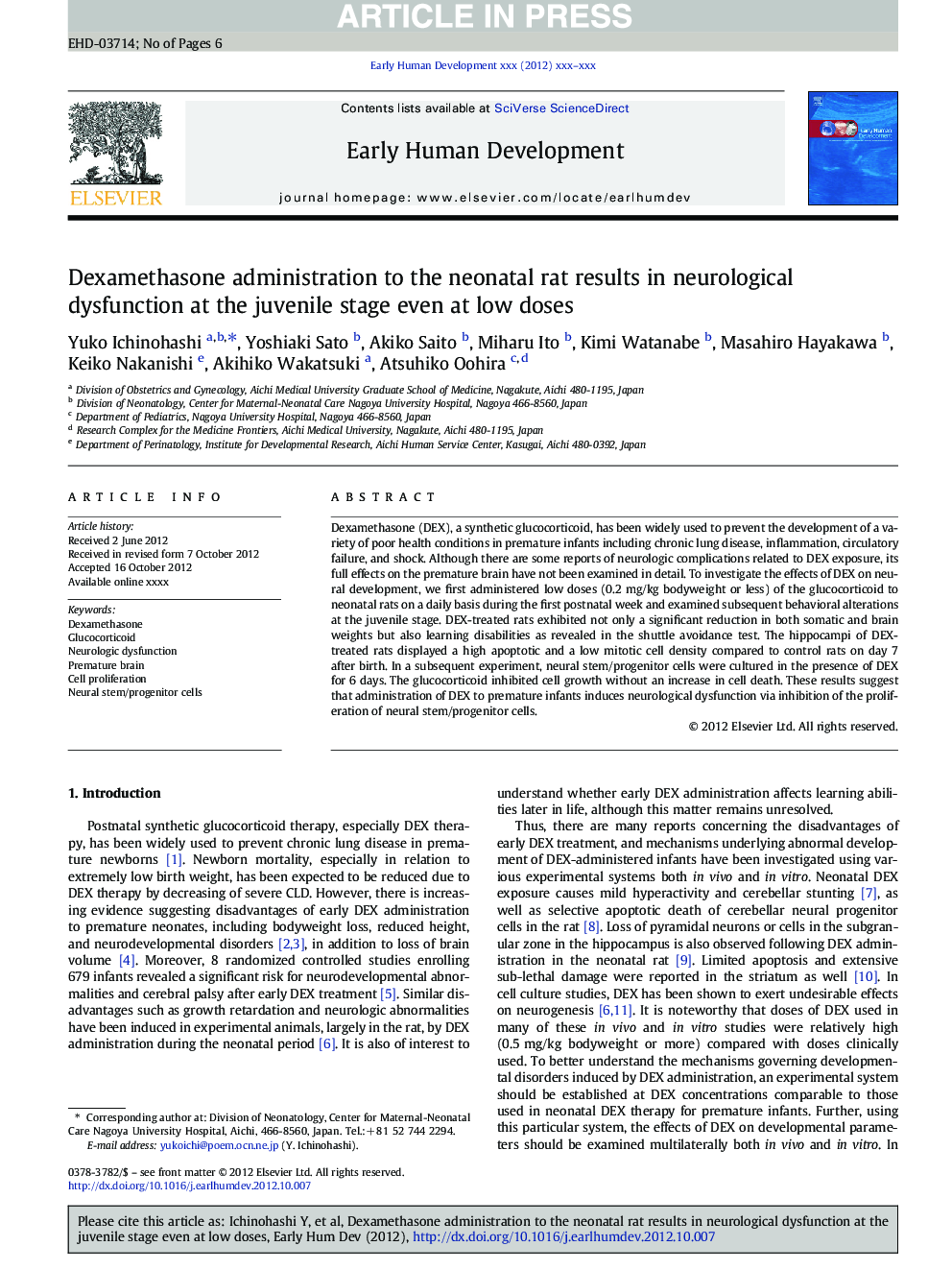| Article ID | Journal | Published Year | Pages | File Type |
|---|---|---|---|---|
| 6171996 | Early Human Development | 2013 | 6 Pages |
Abstract
Dexamethasone (DEX), a synthetic glucocorticoid, has been widely used to prevent the development of a variety of poor health conditions in premature infants including chronic lung disease, inflammation, circulatory failure, and shock. Although there are some reports of neurologic complications related to DEX exposure, its full effects on the premature brain have not been examined in detail. To investigate the effects of DEX on neural development, we first administered low doses (0.2Â mg/kg bodyweight or less) of the glucocorticoid to neonatal rats on a daily basis during the first postnatal week and examined subsequent behavioral alterations at the juvenile stage. DEX-treated rats exhibited not only a significant reduction in both somatic and brain weights but also learning disabilities as revealed in the shuttle avoidance test. The hippocampi of DEX-treated rats displayed a high apoptotic and a low mitotic cell density compared to control rats on day 7 after birth. In a subsequent experiment, neural stem/progenitor cells were cultured in the presence of DEX for 6Â days. The glucocorticoid inhibited cell growth without an increase in cell death. These results suggest that administration of DEX to premature infants induces neurological dysfunction via inhibition of the proliferation of neural stem/progenitor cells.
Keywords
Related Topics
Health Sciences
Medicine and Dentistry
Obstetrics, Gynecology and Women's Health
Authors
Yuko Ichinohashi, Yoshiaki Sato, Akiko Saito, Miharu Ito, Kimi Watanabe, Masahiro Hayakawa, Keiko Nakanishi, Akihiko Wakatsuki, Atsuhiko Oohira,
